-
How to Ensure Your Brisbane Property is Compliant with Smoke Alarm Legislation
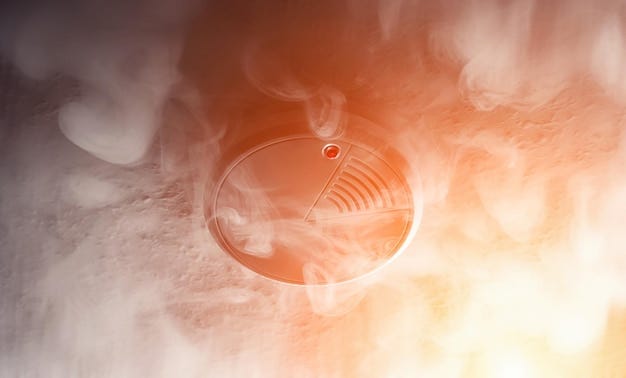
Smoke alarm legislation in Brisbane, Australia has changed recently, and it is important for property owners to understand what is required of them. These new regulations aim to improve the safety of occupants in residential buildings and ensure they are adequately protected in case of a fire.Here is what you need to know to ensure your Brisbane property is compliant with smoke alarm legislation.
Types of Properties Covered
The new legislation applies to all residential properties in Brisbane, including houses, units, townhouses, and duplexes. Even if the property is not currently rented out, it still needs to comply with the new regulations.
Placement of Smoke Alarms
The new legislation requires smoke alarms to be installed in every bedroom, in hallways that connect bedrooms and the rest of the house, and on every level of the property. If a property has a split level, the lower level needs to have a smoke alarm installed even if there are no bedrooms on that level.For properties built before 1997, smoke alarms must be installed in all bedrooms and on every level of the property by 1 January 2022. For properties built after 1997, smoke alarms must be installed in all bedrooms and on every level of the property by 1 January 2027.
Types of Smoke Alarms
The new legislation requires photoelectric smoke alarms to be installed in all residential properties in Brisbane. This type of smoke alarm is more effective at detecting smoke from smoldering fires, which is when most fire deaths occur.
Interconnected Smoke Alarms
All smoke alarms must be interconnected, meaning that if one alarm is triggered, all alarms will sound. This is especially important for larger properties, as it ensures that occupants are alerted to a fire regardless of where it starts in the building.
Maintenance of Smoke Alarms
Property owners are responsible for maintaining smoke alarms and ensuring they are in working order. This includes testing smoke alarms every six months, replacing batteries as needed, and replacing smoke alarms after ten years.
Penalties for Non-Compliance
Non-compliance with smoke alarm legislation can result in significant penalties. For example, failing to install smoke alarms in accordance with the legislation can result in fines of up to $4,004. Failure to maintain smoke alarms can result in fines of up to $668 per alarm.Ensuring compliance with smoke alarm legislation is not only a legal requirement, but it also ensures the safety of occupants in your property. If you are unsure whether your property is compliant, it is important to contact a licensed smoke alarm service provider to assist you.
Choosing a Smoke Alarm Service Provider
When choosing a smoke alarm service provider, it is important to ensure that they are licensed and have experience with installing and maintaining smoke alarms in residential properties. They should also be familiar with the new smoke alarm legislation and be able to provide advice on how to ensure your property is compliant.A good smoke alarm service provider should also offer a comprehensive range of services, including installation, testing, and maintenance of smoke alarms, as well as providing advice on the best type and placement of smoke alarms for your property.In addition, they should be able to provide regular reminders to ensure that smoke alarms are tested and maintained on a regular basis, helping to minimize the risk of non-compliance and ensure the safety of occupants in your property.Ensuring your Brisbane property is compliant with smoke alarm legislation is an important responsibility for all property owners. By understanding the requirements of the legislation and choosing a licensed and experienced smoke alarm service provider, you can minimize the risk of non-compliance and ensure the safety of occupants in your property.Regular maintenance and testing of smoke alarms is also important to ensure they are in working order and able to detect smoke in the event of a fire. By taking these steps, you can help to protect your property and the people who occupy it.
-
The Future of Smoke Alarm Compliance: Emerging Technologies and Solutions
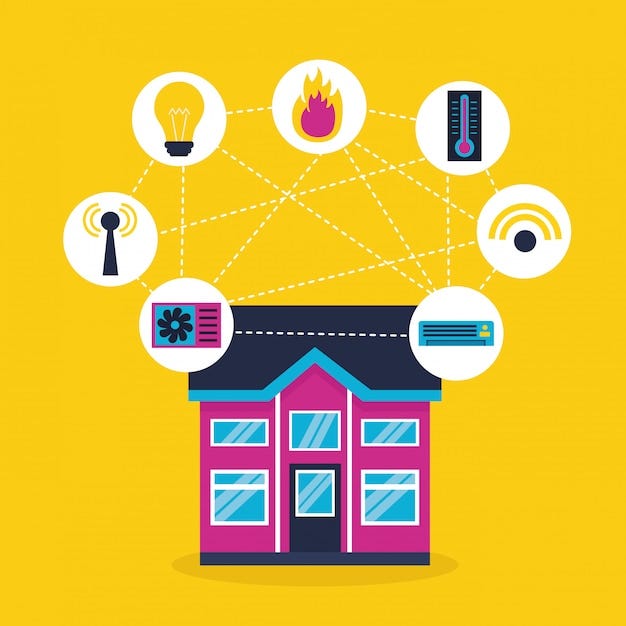
The importance of smoke alarm compliance cannot be overstated. Smoke alarms save lives, and ensuring they are installed and maintained properly is crucial in protecting people and property from the devastating effects of fire. As technology continues to evolve, so too do the options available for ensuring smoke alarm compliance.In this article, we’ll explore some of the emerging technologies and solutions that are changing the landscape of smoke alarm compliance.
Smart Smoke Alarms
One of the most significant advancements in smoke alarm technology is the development of smart smoke alarms. These alarms can connect to a home’s Wi-Fi network, allowing them to communicate with other smart devices in the home. This technology allows for enhanced functionality, such as the ability to remotely check the status of the smoke alarm and receive alerts on a smartphone.Smart smoke alarms can also provide more detailed information about the type and severity of a fire. For example, some models can distinguish between slow-burning, smoldering fires and fast-burning, flaming fires. This information can be useful for determining the appropriate response to a fire and can help emergency responders arrive on the scene more quickly.
IoT Sensors
The Internet of Things (IoT) has brought many advancements in home automation, and smoke alarm compliance is no exception. IoT sensors can be installed throughout a property to monitor various conditions, including temperature, humidity, and smoke levels.These sensors can communicate with each other and with a central hub, allowing for real-time monitoring and alerting. In the event of a fire, the sensors can automatically trigger alarms, notify emergency services, and even shut off gas and electricity to the property.
Remote Monitoring and Maintenance
Maintaining smoke alarm compliance can be a time-consuming task, especially for large properties or those with multiple buildings. Remote monitoring and maintenance solutions can help simplify this process by allowing smoke alarms to be monitored and maintained from a central location.These solutions can provide real-time status updates on smoke alarms, including battery life, fault notifications, and alarm activation. They can also generate reports and alerts for maintenance tasks such as battery replacement, and can even schedule maintenance appointments automatically.
Machine Learning and AI
Machine learning and artificial intelligence (AI) are revolutionizing the way smoke alarms are monitored and managed. These technologies can analyze data from smoke alarms and other sensors to identify patterns and anomalies that may indicate a fire risk.For example, AI algorithms can analyze data from temperature and humidity sensors to detect changes that may indicate a fire is starting. They can also monitor social media and news reports to identify areas where wildfires may be occurring and alert property owners in those areas to take extra precautions.
Virtual Reality Training
Smoke alarm compliance doesn’t end with installation and maintenance; it also involves ensuring that people know what to do in the event of a fire. Virtual reality (VR) training can help people prepare for emergencies by providing a realistic simulation of a fire.VR training can teach people how to respond to different types of fires and help them develop an escape plan. It can also provide training on how to use fire extinguishers and other firefighting equipment. By simulating different scenarios, VR training can help people feel more confident and prepared in the event of a real fire.Smoke alarm compliance is essential for protecting people and property from the devastating effects of fire. As technology continues to evolve, new solutions are emerging that can help simplify the process of ensuring smoke alarm compliance. From smart smoke alarms to machine learning and AI, these technologies are changing the way we think about fire safety and prevention.Investing in smoke alarm compliance is a wise decision for any property owner, and these emerging technologies and solutions can help make that investment more effective and efficient. Whether you’re a homeowner or a property manager, it’s essential to stay up-to-date on the latest advancements in smoke alarm technology and ensure your property is protected.
-
The Consequences of Non-Compliance with Smoke Alarm Legislation
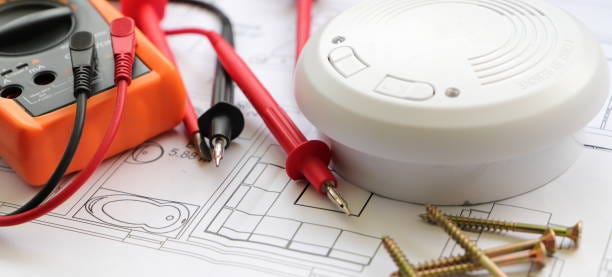
The importance of smoke alarms in our homes cannot be overstated. They are the first line of defense against fires, alerting us to danger and giving us precious seconds to evacuate. In Australia, smoke alarm legislation has been put in place to ensure that every home is equipped with a working smoke alarm. Failure to comply with this legislation can have serious consequences, both in terms of human life and financial penalties.In this article, we will discuss the consequences of non-compliance with smoke alarm legislation and why it is so important to ensure that your home or property is compliant.
Legal Consequences
In many states in Australia, smoke alarm legislation requires that every home has working smoke alarms installed in specific locations. These laws differ from state to state, but they all have the same objective: to protect lives and property in the event of a fire.Non-compliance with smoke alarm legislation can result in hefty fines and legal action. In Queensland, for example, landlords can face fines of up to $4,004. In New South Wales, failure to install or maintain smoke alarms can result in fines of up to $5,500 for individuals and $22,000 for corporations.
Financial Consequences
The financial consequences of non-compliance can go beyond just fines. In the event of a fire, insurance companies may refuse to pay out if they find that the property was not compliant with smoke alarm legislation. This means that you may be left with the full cost of repairing or rebuilding your property.
Human Consequences
The most important consequence of non-compliance with smoke alarm legislation is the potential loss of human life. Smoke alarms save lives by detecting smoke and alerting occupants to a potential fire. Without working smoke alarms, people may not be alerted to a fire until it is too late to evacuate safely.In 2019, there were 118 fire-related deaths in Australia, with many of these deaths occurring in homes without working smoke alarms. The tragic loss of life that can result from non-compliance with smoke alarm legislation is a stark reminder of just how important it is to ensure that your home or property is compliant.
How to Ensure Compliance
The easiest way to ensure compliance with smoke alarm legislation is to have a professional smoke alarm service provider inspect and test your smoke alarms. These professionals will ensure that your smoke alarms are installed in the correct locations, are working correctly, and are in compliance with local legislation.It is also important to maintain your smoke alarms properly. This includes testing them regularly, replacing batteries as needed, and replacing smoke alarms that are more than 10 years old. Smoke alarms that are dirty, damaged, or not working correctly should be replaced immediately.If you are a landlord or property manager, it is your responsibility to ensure that your properties are compliant with smoke alarm legislation. This includes ensuring that smoke alarms are installed in the correct locations, are working correctly, and are maintained properly. Failure to do so can result in legal and financial consequences, as well as putting the lives of your tenants at risk.Smoke alarms are a vital safety feature that can save lives and protect property. Ensuring compliance with smoke alarm legislation is not just a legal requirement, but a moral obligation to protect the safety of yourself, your family, and your tenants. The consequences of non-compliance can be severe, including legal and financial penalties, and, most importantly, the potential loss of human life. Regular smoke alarm services and maintenance are crucial to ensuring that your home or property is compliant and safe.
-
Smoke Alarm Services for Commercial Properties: Meeting Safety Standards and Minimizing Risk
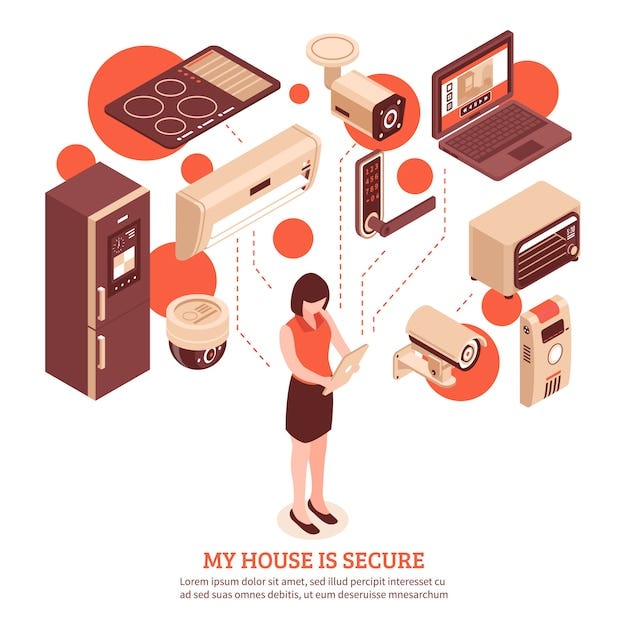
Smoke alarm services are essential for commercial properties to meet safety standards and minimize the risk of fire incidents. Fire safety is a critical issue that every business owner should take seriously to protect their property, employees, and customers. Investing in smoke alarm services ensures that your commercial property meets the necessary safety standards and reduces the risk of fire accidents.
Smoke alarm services include regular inspections, testing, and maintenance of smoke alarms to ensure they are functioning correctly. These services are essential to keep smoke alarms in optimal condition, reducing the risk of failure in the event of a fire. Smoke alarm services also ensure that your smoke alarms comply with local and national safety standards.
Commercial properties are required by law to have functioning smoke alarms installed in every room. Smoke alarms are the first line of defense against fires and can save lives by alerting occupants to evacuate the premises in the event of an emergency. Failure to comply with smoke alarm legislation can result in hefty fines and legal consequences.
In Brisbane, smoke alarm legislation has been introduced to ensure the safety of occupants in all residential and commercial buildings. The legislation requires property owners to install interconnected photoelectric smoke alarms in every bedroom, hallway, and living area in a building. Additionally, smoke alarms must be installed on every level of the building and interconnected to ensure that all alarms sound when one is triggered.
The legislation also requires that all smoke alarms installed in commercial properties must comply with Australian Standard 3786–2014. This standard specifies the minimum requirements for the design, installation, and maintenance of smoke alarms. Failure to comply with this standard can result in fines and legal consequences.
Commercial property owners must ensure that smoke alarms are regularly inspected and tested to comply with smoke alarm legislation. Smoke alarm services provide scheduled inspections and testing of smoke alarms to ensure they are functioning correctly. The service also includes the replacement of faulty smoke alarms to ensure that the property remains compliant with safety standards.
Smoke alarm services for commercial properties also offer customized solutions to meet the specific needs of different businesses. The services are designed to cater to the requirements of different industries, including hospitals, hotels, restaurants, and schools. For instance, hotels and restaurants require smoke alarms that can withstand heat and humidity, while hospitals require smoke alarms that are less sensitive to reduce false alarms.
Smoke alarm services also offer additional services, such as emergency lighting, exit signs, and fire extinguishers. These services are essential for commercial properties to meet safety standards and minimize the risk of fire incidents. Emergency lighting and exit signs are crucial for guiding occupants to safety in the event of a fire, while fire extinguishers can help contain a fire before it spreads.
In conclusion, smoke alarm services are essential for commercial properties to meet safety standards and minimize the risk of fire incidents. Smoke alarm legislation requires commercial property owners to install functioning smoke alarms that comply with safety standards. Smoke alarm services provide scheduled inspections, testing, and maintenance of smoke alarms to ensure they are functioning correctly and comply with safety standards. These services offer customized solutions to meet the specific needs of different businesses and also provide additional services such as emergency lighting, exit signs, and fire extinguishers. Investing in smoke alarm services is an essential step towards ensuring the safety of your commercial property and its occupants.
-
How Often Should You Schedule Smoke Alarm Services? Expert Recommendations
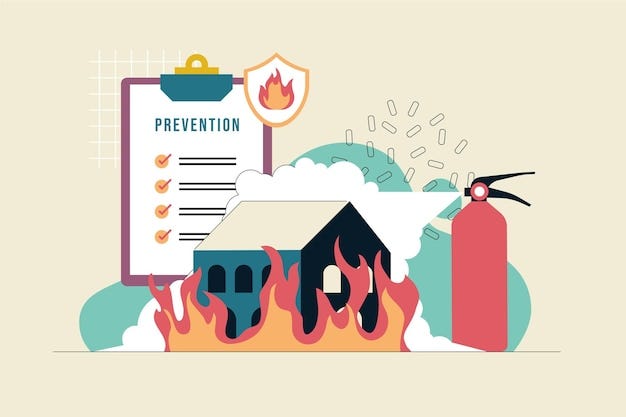
Smoke alarms are an essential safety feature in any building, whether it’s a home or a commercial property. Smoke alarms are designed to detect smoke and alert occupants to the presence of a fire, giving them time to evacuate the building and call emergency services. But just having smoke alarms installed is not enough. Regular maintenance and testing are crucial to ensure that they are functioning correctly and will provide the necessary warning in the event of a fire.
So, how often should you schedule smoke alarm services? Here are some expert recommendations.
Annual Inspection
It is recommended to have a professional inspection of your smoke alarms at least once a year. This inspection will ensure that your smoke alarms are in good working condition and meet the current safety standards. During the inspection, the technician will check the battery, sensors, and overall performance of the smoke alarms. They will also clean the smoke alarms to prevent any false alarms.
Battery Replacement
The batteries in smoke alarms should be replaced at least once a year. This is usually done during the annual inspection, but if you are doing it yourself, make sure to replace the battery with a new one. It is also important to test the smoke alarm after replacing the battery to ensure it is working correctly.
Testing
Smoke alarms should be tested at least once a month to ensure they are functioning correctly. This can be done by pressing the test button on the smoke alarm. If the alarm does not sound, it may be due to a dead battery or a malfunctioning smoke alarm. In this case, you should schedule a smoke alarm service to have it checked.
Cleaning
Smoke alarms should be cleaned at least once a year to prevent false alarms. Dust, dirt, and other particles can build up on the sensors, causing the alarm to go off even if there is no smoke. To clean the smoke alarm, gently vacuum the exterior of the alarm with a soft brush attachment.
Replacement
Smoke alarms have a limited lifespan and should be replaced every ten years. Even if the smoke alarm appears to be working correctly, it may not be as reliable as a new one. Smoke alarms that are ten years old or older should be replaced with new ones.
In addition to these recommendations, there are also specific smoke alarm legislation requirements in different locations. For example, in Brisbane, the smoke alarm legislation requires that all homes and units have interconnected photoelectric smoke alarms installed in all bedrooms, hallways, and other spaces. The legislation also requires that all smoke alarms be replaced every ten years.
When it comes to commercial properties, there may be additional requirements depending on the type of business and the size of the property. For example, a restaurant or commercial kitchen may require special smoke alarms that can detect smoke from cooking.
In summary, it is essential to schedule smoke alarm services regularly to ensure that they are functioning correctly and meeting safety standards. The recommended schedule for smoke alarm services includes an annual inspection, monthly testing, battery replacement at least once a year, cleaning at least once a year, and replacement every ten years. Additionally, it is essential to stay up-to-date with local smoke alarm legislation requirements to ensure compliance and safety.
-
Smart Smoke Alarm Systems: Taking Home Safety to the Next Level

Smart smoke alarm systems have revolutionized home safety. These systems are designed to detect smoke and carbon monoxide, and they alert you in case of danger. They are connected to the internet and can send notifications to your smartphone or other devices. They can also interact with other smart home devices, such as smart locks and smart thermostats, to create a safer and more comfortable home environment.Smart smoke alarm systems have many advantages over traditional smoke alarms. They provide more comprehensive protection and can detect a wider range of dangerous substances, such as carbon monoxide. They are also more convenient to use, as you can control them remotely and receive notifications when there is a problem. Additionally, they can provide valuable data and insights about your home, such as the temperature and humidity levels.There are several types of smart smoke alarm systems on the market, each with its own unique features and benefits. Some of the most popular systems include:
- Nest Protect: Nest Protect is a smart smoke and carbon monoxide alarm system that is designed to provide advanced protection for your home. It uses advanced sensors and algorithms to detect danger and sends alerts to your phone or tablet. It also features a voice alert system that tells you exactly what the problem is and where it is located.First Alert Onelink: First Alert Onelink is a smart smoke and carbon monoxide alarm system that is designed to work with Apple HomeKit. It can be controlled using Siri, and it can send alerts to your phone or tablet. It also features a night light that can be controlled using your phone.Kidde RemoteLync: Kidde RemoteLync is a smart smoke alarm system that is designed to work with Amazon Alexa. It can be controlled using voice commands, and it can send alerts to your phone or tablet. It also features a battery backup that ensures it continues to work even if there is a power outage.Roost Smart Battery: Roost Smart Battery is a smart battery that can be used to upgrade your existing smoke alarm system. It connects to your home Wi-Fi network and sends alerts to your phone or tablet when it detects danger. It also features a battery life indicator that tells you when the battery needs to be replaced.
When choosing a smart smoke alarm system, there are several factors to consider. The first is compatibility with your home’s existing Wi-Fi network and other smart home devices. The system should also have a user-friendly interface and be easy to install and use. Additionally, it should provide reliable and accurate alerts, and it should have a long battery life.It is important to note that while smart smoke alarm systems are more advanced than traditional smoke alarms, they still need to be maintained and tested regularly to ensure they are working properly. This includes testing the alarms once a month and replacing the batteries at least once a year.In conclusion, smart smoke alarm systems are a game-changer for home safety. They provide advanced protection against smoke and carbon monoxide, and they are more convenient and easy to use than traditional smoke alarms. When choosing a smart smoke alarm system, it is important to consider compatibility, ease of use, reliability, and maintenance requirements. By investing in a smart smoke alarm system, you can rest assured that your home is protected and that you will be alerted in case of danger.
-
Maximizing Home Security with Smoke Detector Hidden Cameras and Other Surveillance Technology
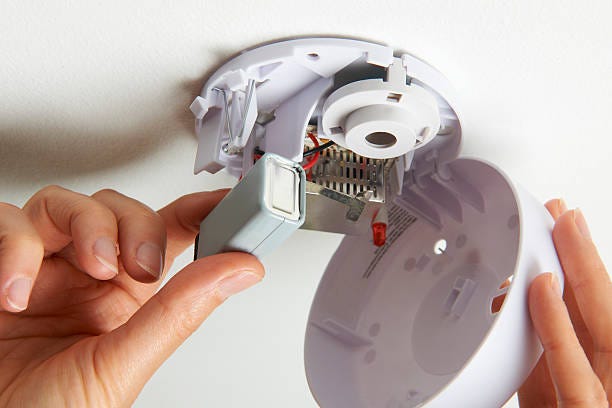
Home security is a top priority for many homeowners. One way to ensure that your home is secure is by installing smoke detector hidden cameras and other surveillance technology. With the rise of smart homes, the integration of security systems has become easier and more convenient. In this article, we will discuss how smoke detector hidden cameras and other surveillance technology can maximize home security.Smoke detector hidden cameras are a discreet and effective way to keep an eye on your home. These devices look and function like regular smoke detectors, but also have a built-in camera that can capture video footage of your home. They are typically wireless and can be connected to your home Wi-Fi network, allowing you to view the footage from anywhere using a smartphone app.One of the benefits of smoke detector hidden cameras is that they are difficult to detect. Burglars often look for visible security cameras and may try to disable them or avoid areas where they are present. However, with smoke detector hidden cameras, they will not know that they are being recorded. This can provide an added layer of security and give you peace of mind when you are away from home.In addition to smoke detector hidden cameras, there are several other surveillance technologies that can be used to maximize home security. These include motion sensors, door and window sensors, and smart locks. Motion sensors can detect movement in a room and trigger an alarm or send an alert to your smartphone. Door and window sensors can detect when a door or window is opened and send an alert to your phone. Smart locks can be locked and unlocked remotely using a smartphone app, allowing you to control who has access to your home.One of the biggest benefits of these technologies is their ability to integrate with each other. For example, if your motion sensor detects movement in your living room, it can trigger your smoke detector hidden camera to start recording. This can help provide more detailed footage of any potential intruders. Similarly, if your door sensor detects that someone has entered your home, it can trigger your smart lock to lock the door automatically, preventing unauthorized access.It’s also important to note that these technologies are not just for security purposes. They can also be used to monitor your home for environmental factors such as carbon monoxide or fire. Smart smoke detectors can alert you if there is a fire or carbon monoxide leak, while smart thermostats can monitor and adjust the temperature in your home to save energy and prevent damage from frozen pipes.When it comes to maximizing home security with smoke detector hidden cameras and other surveillance technology, there are a few things to keep in mind. First, it’s important to choose high-quality devices that are reliable and easy to use. Look for products that have positive reviews and are recommended by trusted sources.Second, consider the layout of your home and where you want to install your devices. For example, if you have a large living room with multiple entry points, you may want to install multiple motion sensors and smoke detector hidden cameras to cover all angles.Finally, make sure to take advantage of the technology’s features and integrate them with each other. By combining the power of smoke detector hidden cameras, motion sensors, door and window sensors, and smart locks, you can create a comprehensive home security system that provides peace of mind and keeps your home safe.In conclusion, smoke detector hidden cameras and other surveillance technologies are a smart choice for homeowners looking to maximize their home security. These devices are discreet, effective, and easy to use, and can be integrated with each other to create a comprehensive security system. When choosing your devices, make sure to choose high-quality products that are reliable and recommended by trusted sources. With the right setup, you can have peace of mind knowing that your home is secure and protected.
-
Why Smoke Detector Hidden Cameras are a Smart Choice for Home Security
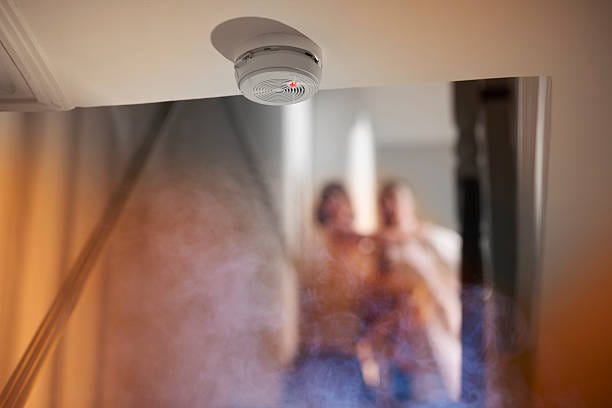
In today’s world, home security is a top priority for many homeowners. As technology continues to advance, there are many new options available for keeping your home safe, including the smoke detector hidden camera. While it may sound like something out of a James Bond movie, smoke detector hidden cameras are becoming an increasingly popular choice for those looking to protect their homes. In this article, we will discuss why smoke detector hidden cameras are a smart choice for home security.First and foremost, smoke detector hidden cameras are incredibly discreet. Unlike traditional security cameras, which can be easily spotted by intruders, smoke detector cameras blend in seamlessly with the rest of your home’s decor. This means that potential intruders will be less likely to spot them, allowing you to monitor your home without anyone being the wiser.Another advantage of smoke detector hidden cameras is that they provide a wide-angle view of your home. This means that you can capture footage of every angle of your home, allowing you to monitor your property more effectively. With traditional security cameras, you may need to install multiple cameras in different locations to capture the same level of coverage.Additionally, smoke detector cameras are relatively easy to install. Unlike traditional security cameras, which often require professional installation, smoke detector cameras can be easily installed by homeowners themselves. This makes them a cost-effective option for those looking to enhance their home security without breaking the bank.One of the most significant benefits of smoke detector hidden cameras is that they can be accessed remotely. This means that you can monitor your home from anywhere in the world, as long as you have an internet connection. Many smoke detector cameras come equipped with apps that allow you to view live footage and receive notifications when motion is detected. This feature is especially useful for those who travel frequently or have vacation homes that they want to keep an eye on.Another advantage of smoke detector hidden cameras is that they can be used in conjunction with other smart home devices. For example, if you have a smart lock installed on your front door, you can use your smoke detector camera to see who is at the door before unlocking it. Similarly, you can use your camera to monitor your home’s temperature and adjust your thermostat accordingly. This integration makes smoke detector cameras a versatile tool for home security.It is important to note that using a smoke detector hidden camera comes with ethical and legal considerations. While it is legal to install a smoke detector camera in your own home, it is illegal to install one in someone else’s home without their consent. Additionally, you must inform any guests who stay in your home that there is a hidden camera in the smoke detector. Failure to do so could result in legal consequences.In conclusion, smoke detector hidden cameras are an excellent choice for home security. They are discreet, easy to install, provide wide-angle coverage, and can be accessed remotely. Additionally, they can be integrated with other smart home devices to create a comprehensive home security system. However, it is important to remember that ethical and legal considerations must be taken into account when using these devices. By using them responsibly, you can enjoy the peace of mind that comes with knowing your home is safe and secure.
-
Preventing False Alarms: How to Stop Your Smoke Alarm from Beeping Unnecessarily
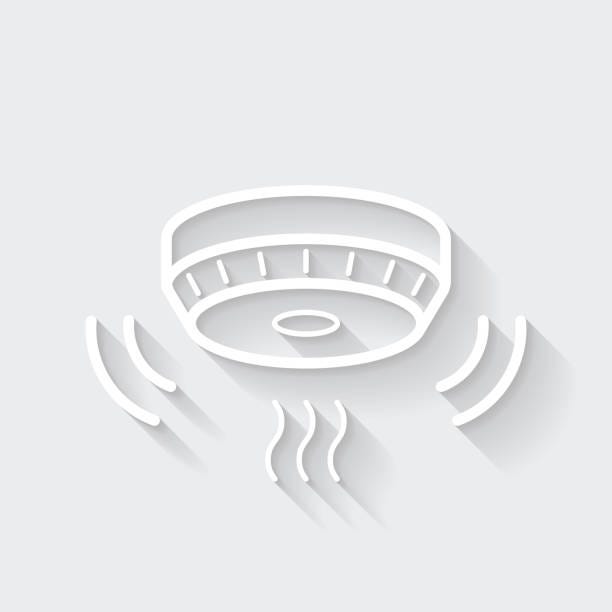
Smoke alarms are an essential part of home safety. They alert us to the presence of smoke and fire, giving us time to evacuate and call for help. However, a smoke alarm that beeps unnecessarily can be a nuisance, causing frustration and even anxiety for homeowners. In this article, we will discuss the common causes of false alarms and provide tips on how to prevent them.
Low Battery
The most common cause of a beeping smoke alarm is a low battery. Smoke alarms are designed to emit a beeping sound when the battery is low, signaling the need for a replacement. If your smoke alarm is beeping intermittently, this may be the cause. To prevent false alarms due to low battery, it’s essential to replace the batteries in your smoke alarms regularly. Many experts recommend replacing the batteries in smoke alarms every six months.
Dust and Debris
Smoke alarms are sensitive devices that can be triggered by even a small amount of smoke or debris. Dust, pet hair, and other debris can accumulate in smoke alarms over time, causing them to beep unnecessarily. To prevent false alarms caused by dust and debris, it’s important to clean your smoke alarms regularly. You can use a vacuum cleaner or a soft brush to remove any accumulated debris from the smoke alarm. Make sure to follow the manufacturer’s instructions on cleaning your specific smoke alarm model.
Cooking Smoke
Another common cause of false alarms is cooking smoke. Smoke from cooking can trigger a smoke alarm, especially if the smoke detector is located near the kitchen. To prevent false alarms caused by cooking smoke, it’s best to install a smoke alarm in the kitchen that is specifically designed for this purpose. These alarms are designed to be less sensitive to cooking smoke, reducing the risk of false alarms.
Humidity
High humidity levels can also cause false alarms. Moisture in the air can accumulate on the smoke alarm, causing it to malfunction. If your smoke alarm is located in a high-humidity area, such as a bathroom or laundry room, you may want to consider installing a smoke alarm with a built-in humidity sensor. These sensors can detect high levels of humidity and adjust the sensitivity of the smoke alarm accordingly.
Age of the Smoke Alarm
The age of the smoke alarm can also be a factor in false alarms. Smoke alarms have a limited lifespan, typically ranging from eight to ten years. After this time, they may start to malfunction, causing false alarms. If your smoke alarm is more than ten years old, it may be time to replace it with a new one. Some newer smoke alarms also come with advanced features, such as wireless connectivity and voice alerts, which can improve home safety.
Location of the Smoke Alarm
The location of the smoke alarm can also be a factor in false alarms. Smoke alarms should be installed in areas where smoke is most likely to accumulate, such as near bedrooms and in common areas of the home. However, they should not be installed near doors or windows, as drafts can cause false alarms. Additionally, smoke alarms should not be installed in areas where the temperature may fluctuate significantly, such as in garages or attics.Preventing false alarms is essential for maintaining the effectiveness of smoke alarms in protecting your home and family. By following these tips, you can reduce the risk of false alarms and ensure that your smoke alarms are working properly. Remember to replace the batteries in your smoke alarms regularly, clean them regularly, and install them in appropriate locations. If you are still experiencing false alarms after following these steps, it may be time to replace your smoke alarms with newer models.
-
Common Issues to Look Out for During Smoke Alarm Checks
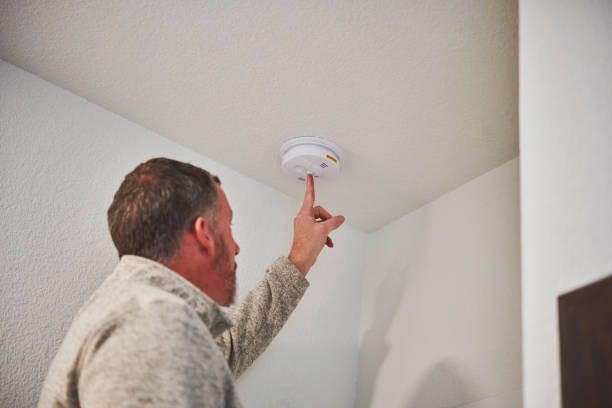
Smoke alarms are essential safety features in any home or building. They are designed to detect the presence of smoke and alert occupants to potential fires. However, like any other device, smoke alarms require regular maintenance and testing to ensure that they are functioning properly. In this article, we will discuss some of the most common issues to look out for during smoke alarm checks.
Dead Batteries
One of the most common issues with smoke alarms is dead or missing batteries. Batteries are responsible for providing power to the alarm, and when they die, the alarm cannot function. Therefore, it is important to test the batteries in your smoke alarm regularly and replace them when necessary. It is recommended that you replace the batteries in your smoke alarm at least once a year, and test the alarm every month.
Sensor Contamination
Smoke alarms work by detecting the presence of smoke in the air. If the sensor becomes contaminated with dust, dirt, or other debris, it may not function properly. To prevent sensor contamination, it is important to clean your smoke alarm regularly. Use a soft brush or vacuum cleaner to remove any dust or debris from the sensor. If you have a hardwired smoke alarm, you may need to call a professional to clean the sensor.
Improper Placement
The placement of your smoke alarm is critical to its effectiveness. If your smoke alarm is installed in the wrong location, it may not detect smoke and alert occupants to a potential fire. According to the National Fire Protection Association (NFPA), smoke alarms should be installed in every bedroom, outside each sleeping area, and on every level of the home. Smoke alarms should also be installed at least 10 feet away from cooking appliances to avoid false alarms.
Age of the Smoke Alarm
Like any other device, smoke alarms have a limited lifespan. Over time, the sensors in smoke alarms can become less sensitive and the device may not function properly. Therefore, it is important to replace your smoke alarm every 10 years, or according to the manufacturer’s recommendations. If you are unsure of the age of your smoke alarm, look for a date code on the back of the device.
Power Outages
Power outages can also affect the functioning of smoke alarms. If your smoke alarm is hardwired to your home’s electrical system, it may not function during a power outage. To prevent this from happening, install a smoke alarm with a battery backup. This will ensure that the alarm continues to function even if the power goes out.
False Alarms
False alarms are another common issue with smoke alarms. They can be caused by cooking smoke, steam from a shower, or even dust or debris in the air. To prevent false alarms, it is important to install smoke alarms in the correct location and keep them clean. You can also purchase smoke alarms with a hush button that allows you to temporarily silence the alarm.In conclusion, smoke alarms are an essential safety feature in any home or building. Regular maintenance and testing are critical to ensuring that they function properly. By being aware of the common issues that can occur during smoke alarm checks, you can take steps to prevent them and keep your home and family safe. Remember to test your smoke alarm regularly, replace the batteries at least once a year, and replace the device every 10 years or according to the manufacturer’s recommendations.
-
Subscribe
Subscribed
Already have a WordPress.com account? Log in now.